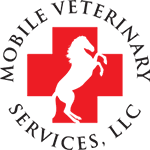 This is Part 3, and the conclusion of our Colic Series. If you missed Part 1, you can read it here for a basic overview of equine GI anatomy, the difference between medical and surgical colic, and some colic causes. For what to expect financially from a colic...
This is Part 3, and the conclusion of our Colic Series. If you missed Part 1, you can read it here for a basic overview of equine GI anatomy, the difference between medical and surgical colic, and some colic causes. For what to expect financially from a colic...
 This is Part 2 of our Colic Series. If you missed Part 1, you can read it here for a basic overview of equine GI anatomy, the difference between medical and surgical colic, and some colic causes. Today, we’ll be talking about planning for colic, costs of colic...
This is Part 2 of our Colic Series. If you missed Part 1, you can read it here for a basic overview of equine GI anatomy, the difference between medical and surgical colic, and some colic causes. Today, we’ll be talking about planning for colic, costs of colic...
 Over the next few months, we’ll be featuring a series on colic. What is it? What causes it? Can you prevent it? What are the different kinds of colic? How much does treatment cost? What are the most common colics we see here in Colorado? We’ll be answering these...
Over the next few months, we’ll be featuring a series on colic. What is it? What causes it? Can you prevent it? What are the different kinds of colic? How much does treatment cost? What are the most common colics we see here in Colorado? We’ll be answering these...
 Most of us have heard the old adage “you can lead a horse to water, but you can’t make him drink.” If you have ever tried to get a colicky horse to drink water, taken your finicky horse to a new place, or worked your horse more than normal, you’ve probably...
Most of us have heard the old adage “you can lead a horse to water, but you can’t make him drink.” If you have ever tried to get a colicky horse to drink water, taken your finicky horse to a new place, or worked your horse more than normal, you’ve probably...
 Question: If I am going to be taking my horses on a long (30-50) mile pack trip this summer, what special precautions and preparations should I make for them? Here in Colorado, we are privileged to have millions of acres of National Forest, BLM, open space and...
Question: If I am going to be taking my horses on a long (30-50) mile pack trip this summer, what special precautions and preparations should I make for them? Here in Colorado, we are privileged to have millions of acres of National Forest, BLM, open space and...








